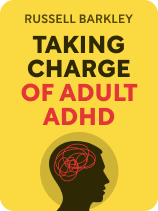

This article is an excerpt from the Shortform book guide to "Taking Charge of Adult ADHD" by Russell Barkley. Shortform has the world's best summaries and analyses of books you should be reading.
Like this article? Sign up for a free trial here.
Why do people with ADHD have trouble judging time? How does time blindness affect even the little things in life?
People with ADHD may have an impaired relationship with time. Dr. Russell A. Barkley discusses how ADHD affects your sense of the present, the past, and the future, as well as how that can impact your everyday life.
Find out how time blindness in ADHD happens.
Poor Time-Sense
Barkley argues that an important function of the “stop, think, then act” mental process is that it lets you build a mental image of the present, compare it to memories of the past, and make best-guess predictions of the future. When time blindness in ADHD interrupts that process, you have difficulty judging the passage of time, and because you’re not aware of time, you can’t consciously manage it. You have problems estimating how much time things will take, so you’ll consistently underestimate how much time you need. You’ll miss deadlines and frequently run late for appointments. The people in your life may think you’re unreliable, when really you’re simply lacking a sense of time that most other people take for granted.
ADHD doesn’t just impair your ability to measure time passing in the present—it also impacts your perception of time on a larger scale. Barkley states that because of ADHD, your recall of past events may be impaired, as well as your ability to envision the future. You may have trouble remembering specific details of your life, such as important conversations or the results of past behaviors. This becomes a struggle when you need to plan long-term projects or make decisions based on future consequences: When you can’t remember your experiences, you can’t reflect on and learn from them, and if you find it hard to think about the future, you can’t consciously plan for it.
| Time, Memory, and Meaning While Barkley suggests that an impaired sense of time causes memory problems, the relationship between the two also works in the other direction. In Moonwalking With Einstein, Joshua Foer explores how time and memory are tightly interwoven even in neurotypical people. Memorable moments make certain times feel longer, whereas when you’re stuck in a routine, your weeks, months, and years seem to pass quickly. Foer also points to the work of Michel Siffre, who self-induced a state of amnesia by living underground with no way to measure time. People with ADHD experience these effects as a vicious cycle—loss of time negates memory formation, and a lack of memories impairs your sense of time. Though it’s not a strategy Barkley brings up, one potential way to address your sense of time is to actively create memorable moments to fill it. In The Power of Moments, Chip and Dan Heath recommend engaging in activities that are meaningful and emotional. Such activities provide moments that can elevate you beyond your everyday life, help you discover something new, give you a sense of validation, or make you feel more deeply connected to the people around you. The more you search out these kinds of experiences, the more your brain will store them as memories, potentially strengthening your experience of time, which could make Barkley’s suggestions later in this guide even more effective in practice. |
Though it’s not the most visible ADHD symptom, lacking a sense of time is just as disabling as being too impulsive and not thinking through your actions. Barkley writes that you may find it nearly impossible to make plans, adhere to schedules, or follow through with set agendas. Suppose you have to finish a specific task at work, go to the dentist, and pick your child up from school, all in the same afternoon. Accomplishing any one of these things requires having a sense of how much time it will take, how it slots into the rest of your schedule, and how much buffer time to leave in between. Trying to keep track of all these things at once requires a cognitive model of time that ADHD undermines at every step of the way.
(Shortform note: Later in this guide, we’ll discuss tools to externalize your plans, schedules, and to-do lists, but another way to tackle this issue is to eliminate anything from your schedule that you can. In The One Thing, Gary Keller says that you should ask yourself: “What’s the one thing I can do that will make everything else easier or unnecessary?” The focusing question takes two forms—“What’s the one thing I’m working toward?” and “What’s the one thing I should be doing right now?” The first determines your purpose, while the second sets your immediate priority. This lets you ignore the array of things you could do and focus on the right things, recognizing that everything on your schedule isn’t equally important.)

———End of Preview———
Like what you just read? Read the rest of the world's best book summary and analysis of Russell Barkley's "Taking Charge of Adult ADHD" at Shortform.
Here's what you'll find in our full Taking Charge of Adult ADHD summary:
- The various treatment options for ADHD in adults
- How to accept ADHD as a part of your life
- What ADHD can look like in undiagnosed adults






